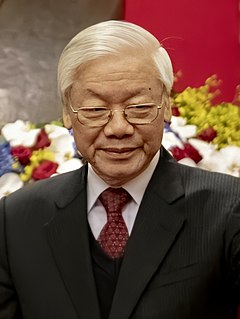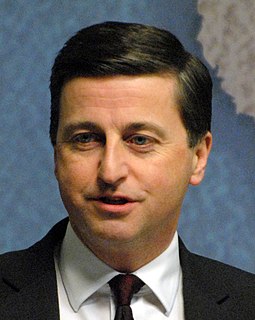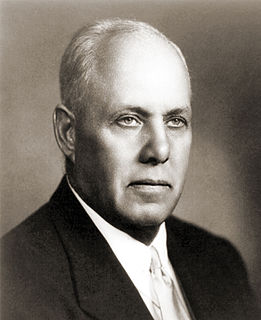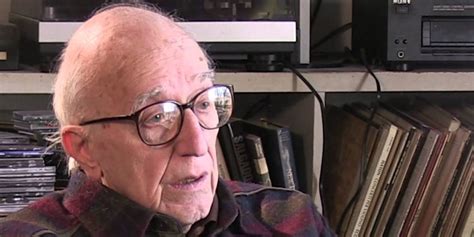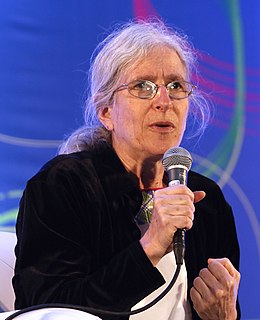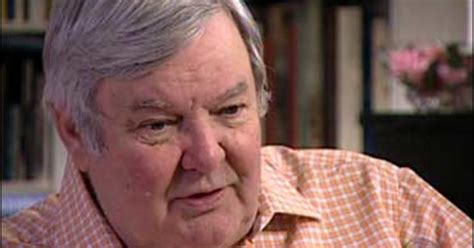A Quote by Nguyen Phu Trong
Like in any relations between two countries in the world, Vietnam and the U.S. have differences on a number of issues such as perception on democracy, human rights and trade.
Related Quotes
The term 'human rights' has been too often associated with conditionality, and with concerns of developing countries that in order to benefit from open trade they would be required to implement immediately labour and environmental standards of a comparable level to those applied in industrialised countries. At the same time, debates about the primacy of trade as against human rights legal codes have contributed to maintaining the unfortunate impression that the two bodies of law are pursuing incompatible aims.
I believe we should try to move away from the vocabulary and attitudes which shape the stereotyping of developed and developing country approaches to human rights issues. We are collective custodians of universal human rights standards, and any sense that we fall into camps of "accuser" and "accused" is absolutely corrosive of our joint purposes. The reality is that no group of countries has any grounds for complacency about its own human rights performance and no group of countries does itself justice by automatically slipping into the "victim" mode.
One cannot have a trade union or a democratic election without freedom of speech, freedom of association and assembly. Without a democratic election, whereby people choose and remove their rulers, there is no method of securing human rights against the state. No democracy without human rights, no human rights without democracy, and no trade union rights without either. That is our belief; that is our creed.
Brexit is not ideal. I'm famously not a Brexit negotiator, but relations between Ireland and the U.K. have been getting stronger, and a big part of that has been trade and feeling like sister countries within the E.U. I don't think it will affect the 'vibe' of relations, but it will have a significant effect on trade and business.
The United States has given frequent and enthusiastic support to the overthrow of democracy in favor of "investor friendly" regimes. The World Bank, IMF, and private banks have consistently lavished huge sums on terror regimes, following their displacement of democratic governments, and a number of quantitative studies have shown a systematic positive relationship between U.S. and IMF / World Bank aid to countries and their violations of human rights.
It’s notable that the countries that most pride themselves on their commitment to equality, human rights, and democracy (like the United States and the western European countries) are precisely those that, in the late twentieth century, invented a new status (‘illegal’) in order to deprive some of their residents of access to equality, human rights, and democracy.I am honored to lend my name to PICUM’s campaign to end the use of the term ‘illegal’ and to challenge the whole concept of illegality as a status.
At the end of the day, these are issues that need to be discussed: femicides, among other things - immigrant rights, women's' rights, indigenous people's rights, animal rights, Mother Earth's rights. If we don't talk about these topics, then we have no place in democracy. It won't exist. Democracy isn't just voting; it's relegating your rights.
Could Afghanistan become another Vietnam? Is the United States facing another stalemate on the other side of the world? Premature the questions may be, three weeks after the fighting began. Unreasonable they are not, given the scars scoured into the national psyche by defeat in Southeast Asia. For all the differences between the two conflicts, and there are many, echoes of Vietnam are unavoidable.
After the First World War, Germany was trying to build a democracy. Then when the Reichstag, the legislature, was burned down in 1933, this was seen as such an emergency that human rights had to be suspended. The attack on the World Trade Towers has allowed Bush and his gang to do anything. What are we to do now? I say when there's a code red, we should all run around like chickens with our heads cut off. I don't feel that we are in any great danger.
Like other countries in the world, China must uphold its own sovereignty, territorial integrity and development interests. At the same time, we are willing to properly handle differences and disagreements in state-to-state relations in accordance with the basic norms governing international relations and the principle of mutual understanding, mutual accommodation, dialogue and consultation.
We have the same genetic code for all living creatures. We have a large number of genes that are manifestly the same, but with detail differences - they look like different drafts of the same book. In extreme cases, like a human and a beetroot, it's like the difference between Matthew and Luke's Gospel - clearly they tell the same story, but with different words. Whereas with a human and a chimp, it's like two different printings of Matthew, with a few typos in one.
